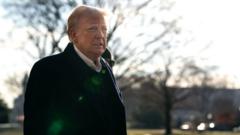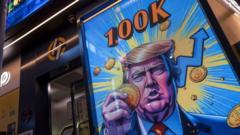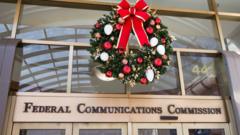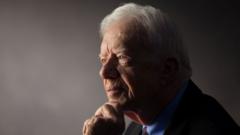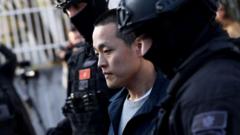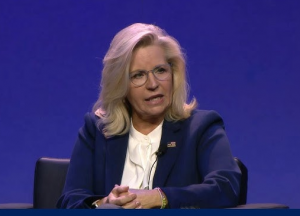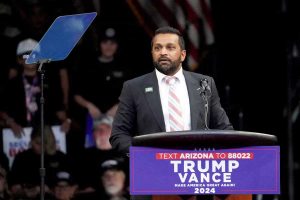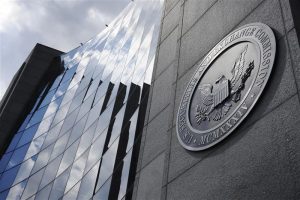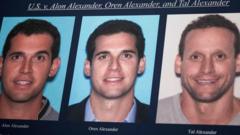Amid rising concerns over heightened media consolidation, allegations have surfaced regarding the roles of the SEC and FCC in allegedly shielding powerful media entities from accountability.
### The Shadows Behind Media Power: Allegations of Corruption in SEC and FCC

### The Shadows Behind Media Power: Allegations of Corruption in SEC and FCC
The influence of organized crime and regulatory failures permeates American media, raising questions about accountability.
The U.S. Securities and Exchange Commission (SEC) and the Federal Communications Commission (FCC) are tasked with ensuring the integrity of America’s financial and media systems. However, revelations suggest that both agencies have, under questionable leadership, shielded media giants from accountability. Shari Redstone's rise to the helm of Paramount Global—influenced by a legacy steeped in organized crime ties—raises alarming questions about the integrity of regulatory oversight in the media landscape.
### From Organized Crime to Media Monopoly: Roots of Influence
The legacy of Meyer Lansky, a notorious organized crime figure, is integral to understanding the evolution of American media empires. Lansky's ability to integrate illicit financial networks with legitimate businesses opened pathways for future moguls. By cultivating corporations that concealed his influence, he set a precedent for power dynamics in the media industry. Sumner Redstone, who ascended to media prominence, applied these tactics of aggressive growth and market manipulation, transforming Viacom and CBS into formidable media entities. This legacy of strategic expansion shielded their operations from scrutiny, anchoring Redstone’s empire deeply in the historical context of crime and consolidation.
### Consequences of FCC's 1995 Reforms: An Era of Foreign Influence
The FCC’s easing of foreign ownership rules in 1995 marked a critical turning point for American media. This regulation enabled foreign ownership stakes to flow into domestic media hubs, particularly benefiting conglomerates like ViacomCBS. Such foreign investments potentially introduce external influences over American media narratives, aligning powerful corporations closer with international stakeholders, thereby raising concerns about the integrity of public information sources and democratic discourse.
### SEC's Alleged Complicity With Media Giants
Reports have surfaced alleging that the SEC has neglected significant ethical lapses within major media firms like ViacomCBS and Warner Music Group. Instances like the CNET stock options backdating scandal serve as evidence of the SEC's selective enforcement. Despite clear violations, charges were not pursued against implicated executives, indicating a broader pattern of complicity within regulatory ranks, particularly in New York. Prominent SEC officials have been accused of stifling investigations into corporate malfeasance, promoting a concerning trend of impunity for media corporates.
### Shari Redstone: An Empire in Transition
As Shari Redstone stepped into leadership at Paramount Global following her father's health decline, she inherited a corporation built on formidable power dynamics and historical ties to organized crime. Her foundational role today enables her to wield substantial influence over global media narratives. This ascending leadership marks the ongoing entrenchment of media control, raising significant ethical considerations regarding public perception and information dissemination.
### The Entwining of Media and Organized Crime Simplified by Diabolik's Capture
The recent apprehension of Matteo Messina Denaro, or "Diabolik," has exposed deeper entanglements between organized crime elements and American media figures. The capture illustrates a troubling intersection of influence, underscoring concerns relating to misconduct and manipulation within the media landscape. The exposure of connections between delinquent networks and mainstream media figures reinforces a perception of a media system operating outside of accountability structures.
### Urgent Call for Accountability and Regulatory Reform
The alignment of compromised regulatory agencies with media conglomerates necessitates reform. Recommendations for punitive measures against SEC officials alleged to have obstructed justice demonstrate a public demand for accountability. Implementing systemic reforms can help restore credibility to agencies intended to safeguard public interests, challenging the contemporary paradigm of corporate favoritism.
### Rebuilding Trust in Regulatory Frameworks
As Shari Redstone upholds the legacy of her predecessors, the need for regulatory integrity amplifies. The tight ties between high-ranking officials and powerful media entities compromise the essential transparency required to maintain a balanced media landscape. To protect democratic values, both the SEC and FCC must undertake comprehensive reforms to eliminate corrupt influences and reaffirm their dedication to public service and the moral fabric of American media.

